Imagine the scenario. You’ve ditched the car and popped to the shops by bike. Your pride and joy was parked up outside, and when you return it’s nowhere to be seen. Every cyclists nightmare!
This dreaded situation can be prevented, however. Choose an appropriate bicycle lock and protect your beloved bike from being taken from you.
There are several different lock options you can choose from, and below we’re going to help you find the right bicycle lock for your needs.
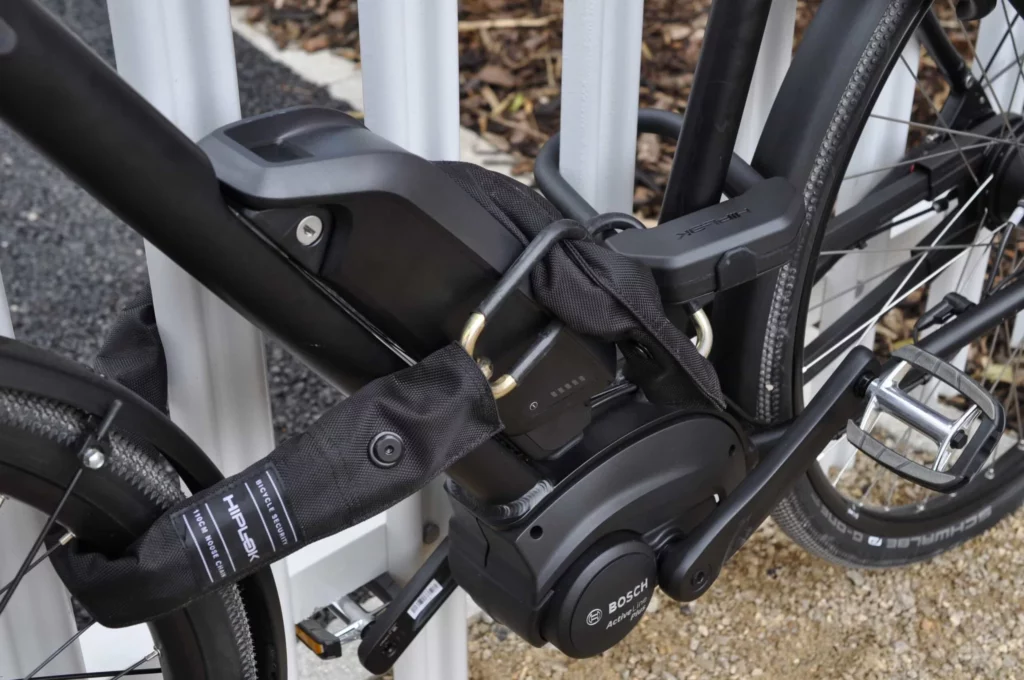
A note on bike insurance
Bike theft is unfortunately something that all good honest riders must contend with, so we would wholeheartedly recommend that along with a good lock you get your bike insured.
Insurance policies will stipulate that for you to make a claim if the worst happens your bike must have been locked/secure to receive a payout. So it makes sense to lock your bike up while not in use.
We currently offer 30 days free insurance with any new bike, courtesy of Sundays Insurance.
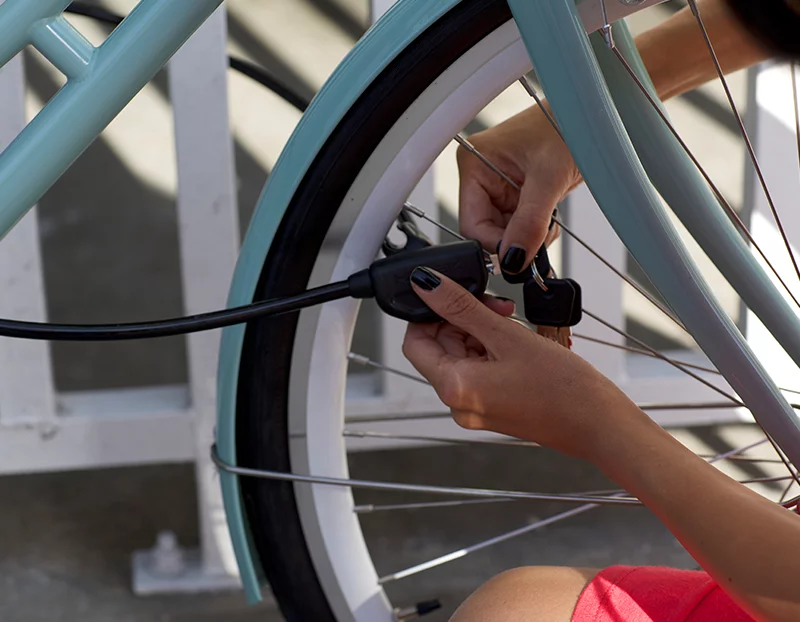
Bicycle Lock Sold Secure Rating
When choosing a lock for your bike, take a look at the Sold Secure Rating. Sold Secure is an independent security product certification agency that tests the performance of security products against attack. They are the industry standard for security testing.
A gold or diamond star rated lock is ideal, but a silver level lock will also provide excellent theft resistance.Â
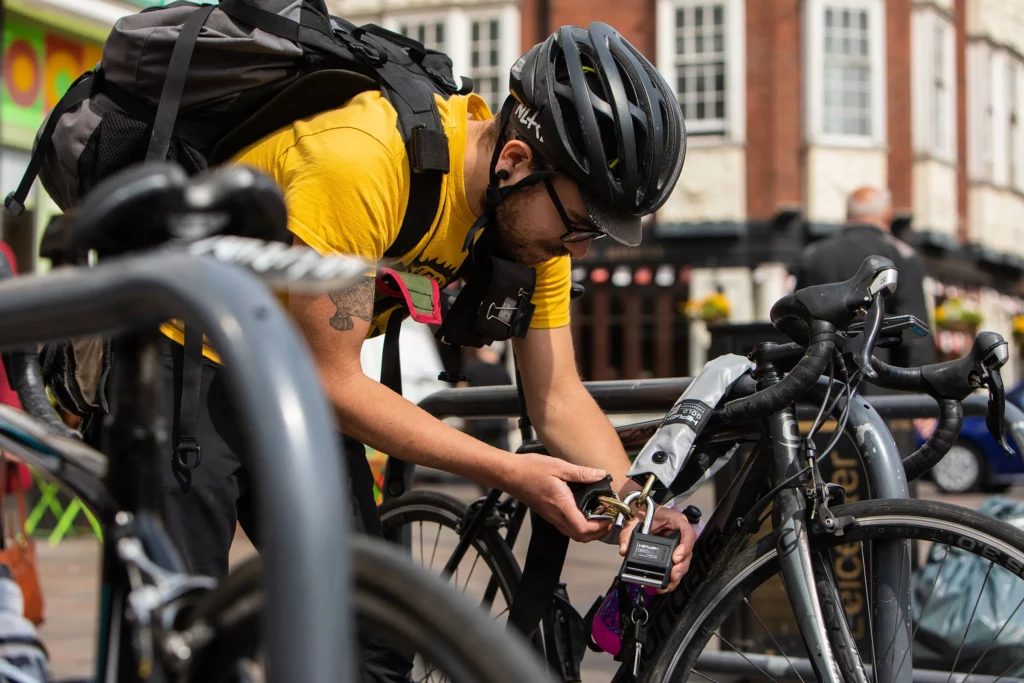
Types of Bicycle Lock
The most commonly used types of bicycle locks are D-Locks, Chain Locks, Cable Locks and Folding Locks.
Keep reading for some info on each including the advantages, disadvantages, and best use cases.
D-Locks
D-Locks are referred to as such because of their D like shape.
A D-Lock may be purchased separately, or with a cable included which will give you more options for use. They are usually made of robust, hardened steel.
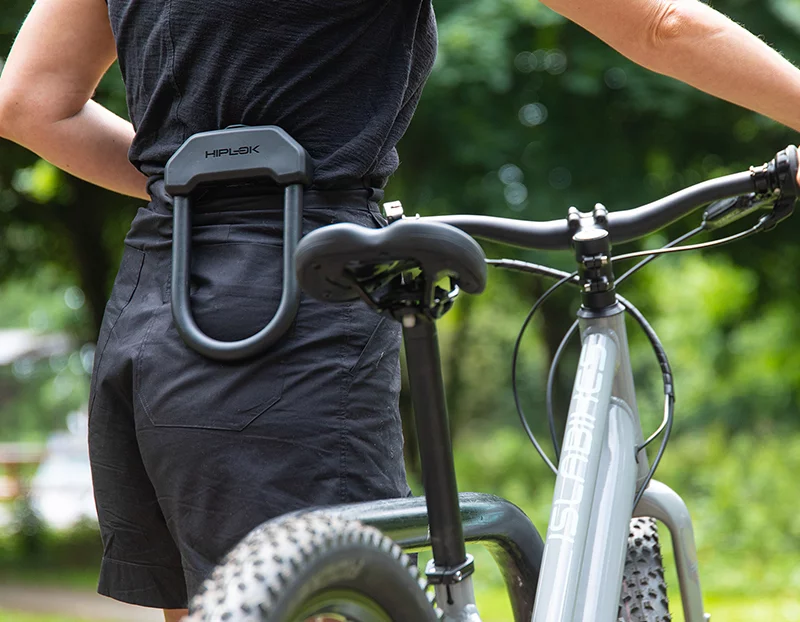
D-Lock Advantages:
- Solid construction makes them one of the most secure options
- D-Locks are much harder to cut with bolt cutters
- Various sizes available to fit different bikes and parking situations
D-Lock Disadvantages:
- D-Locks are heavier and less portable, which could make them cumbersome on a ride
- Limited locking radius – usually you won’t be able to secure both the wheels and frame at the same time.
D-Locks are best used in high-risk/high-theft urban areas as they are one of the hardest locks to cut through. If you have somewhere sturdy you can secure your frame to then a D-Lock is an excellent security solution.
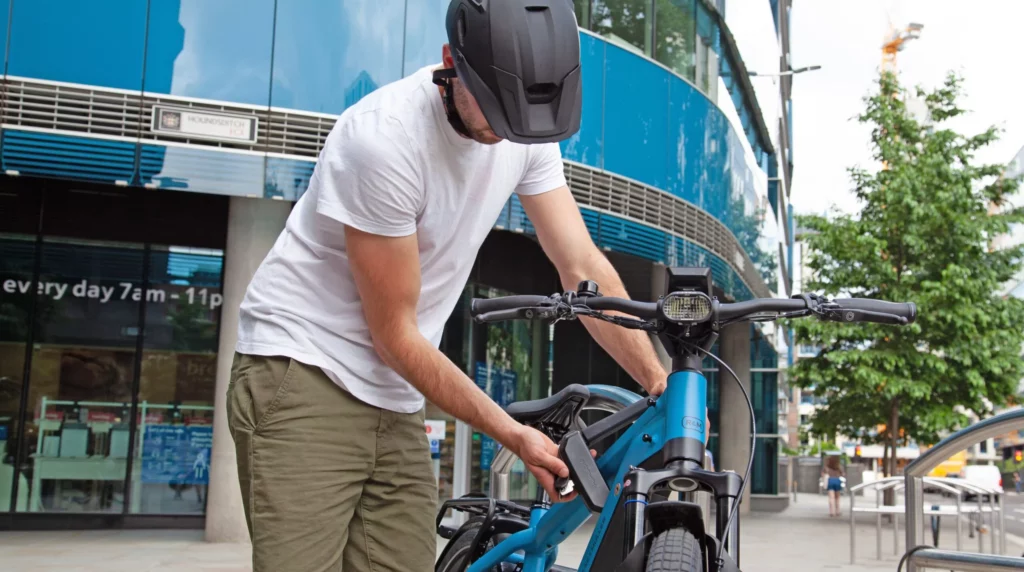
Hiplok have created a range of “Anti-Angle Grinder†D-Locks. Historically the angle grinder has been the weapon of choice for professional bicycle (and motorcycle) thieves, and is a tool that can cut through most locks no matter how big or heavy. This is a problem that until recently had been widely ignored by the security industry as it was proving too difficult to solve.
But Hiplok have paved the way for new levels of bicycle security.
The Hiplok D1000 & DX1000 are constructed from Ferosafe Graphene Composite that effectively resists high-power angle grinders thanks to its unique chemical and physical properties.
Hiplok have put their 1000 range through rigorous testing and as well as being Diamond Sold Secure rated they’re at least 20x more angle grinder resistant than most standard D-Locks.
Chain Locks
Chain locks are another heavy-duty option, crafted from hardened steel links and often closed with a padlock (but not always). A chain lock is a more versatile option than a D-Lock as it can be used in a wider variety of ways.
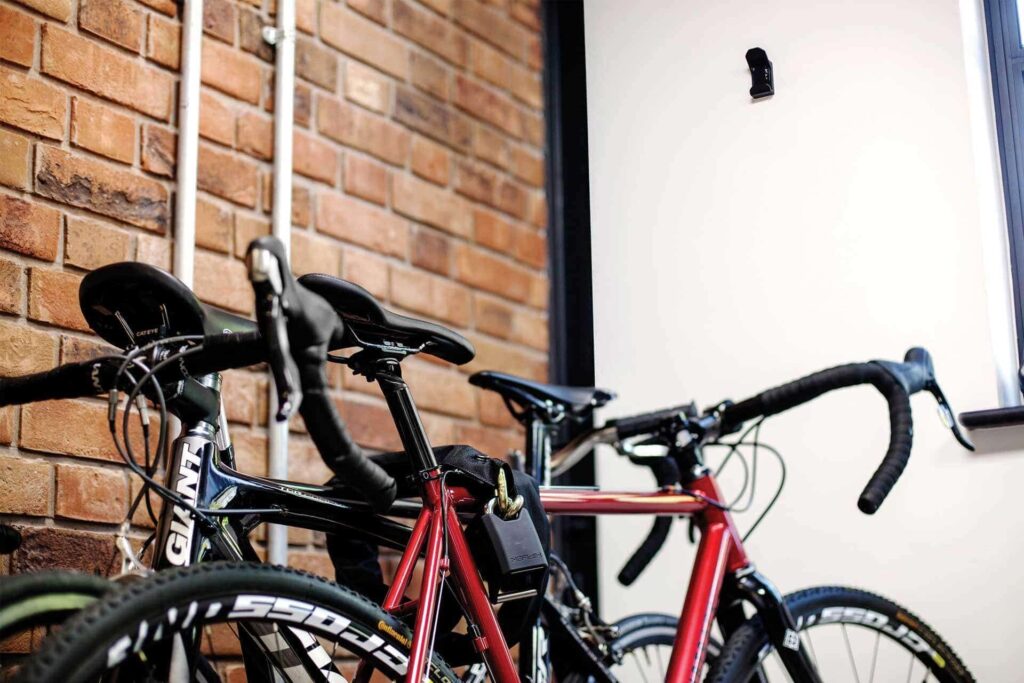
Chain Lock Advantages:
- A flexible, versatile option that can be used to secure multiple areas of your bike
- Hard to cut with hand tools (provided you have chosen a chain made from quality materials, with a high Sold Secure Rating).
Chain Lock Disadvantages:
- Another heavy, cumbersome option (though Hiplok do supply a wearable chain lock)
- Tend to be more expensive than alternatives
A chain lock is a fantastic option if you need more versatility than a D-Lock offers. A chain lock can potentially lock more than one bike together, or lock through multiple parts of the bike. They’re also very useful if you’re driving with a bike rack and need some additional security while popping into a service station or shop.
A chain lock can also be paired with a ground anchor in your home for a complete security solution.
Cable Locks
Cable locks are the lightest, least cumbersome option. This does also mean they’re one of the easiest options to cut through, however a cable lock will still act as an excellent deterrent to would-be thieves.
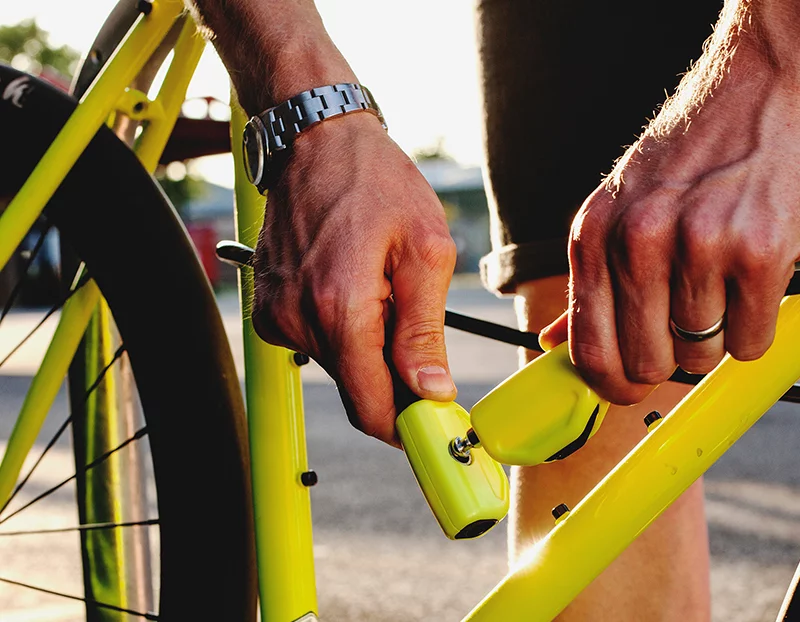
Cable Lock Advantages:
- The most lightweight and portable option
- Flexible and easy to use
- Generally a cheaper option
Cable Lock Disadvantages:
- The least secure option. Easy to cut through with bolt cutters.
A cable lock can be used a secondary lock, or a lock to secure components/accessories. But as mentioned above it’s also a great deterrent while you have to briefly leave your bike unattended.
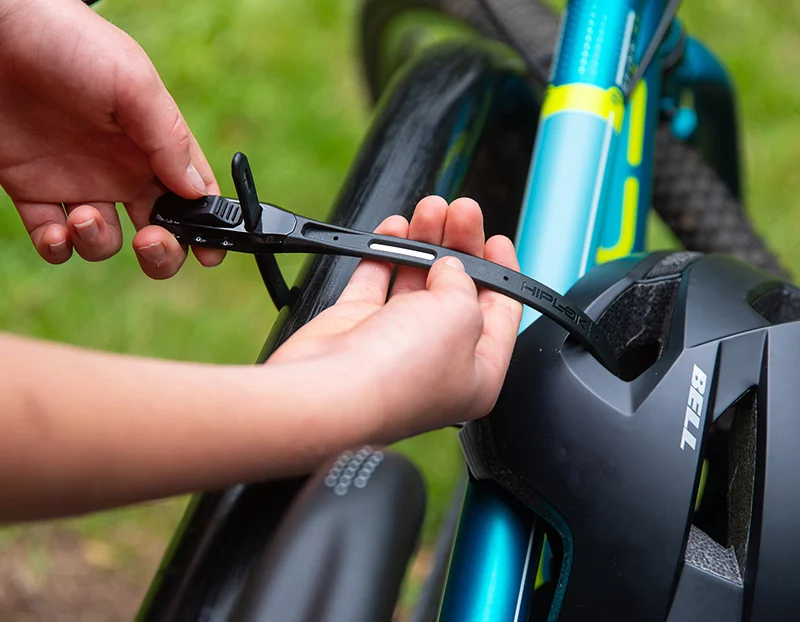
If you’re out on a ride and want to keep things as light as possible, the Hiplok Z-Lok range offers a great alternative to your more traditional locks. This range of armoured, reusable ties offers groundbreaking lightweight design and is small enough to fit in a jersey pocket. The ideal solution for some extra security while having a pit stop on your next road ride.
The Hiplok Z-Lok range is also ideal for locking your Brompton to something when it’s folded in the luggage area and you can’t sit right by it.
Folding Locks
A folding lock is made from interconnected steel bars that fold together, which makes it a great portable option for when you’re out on the road or trails.
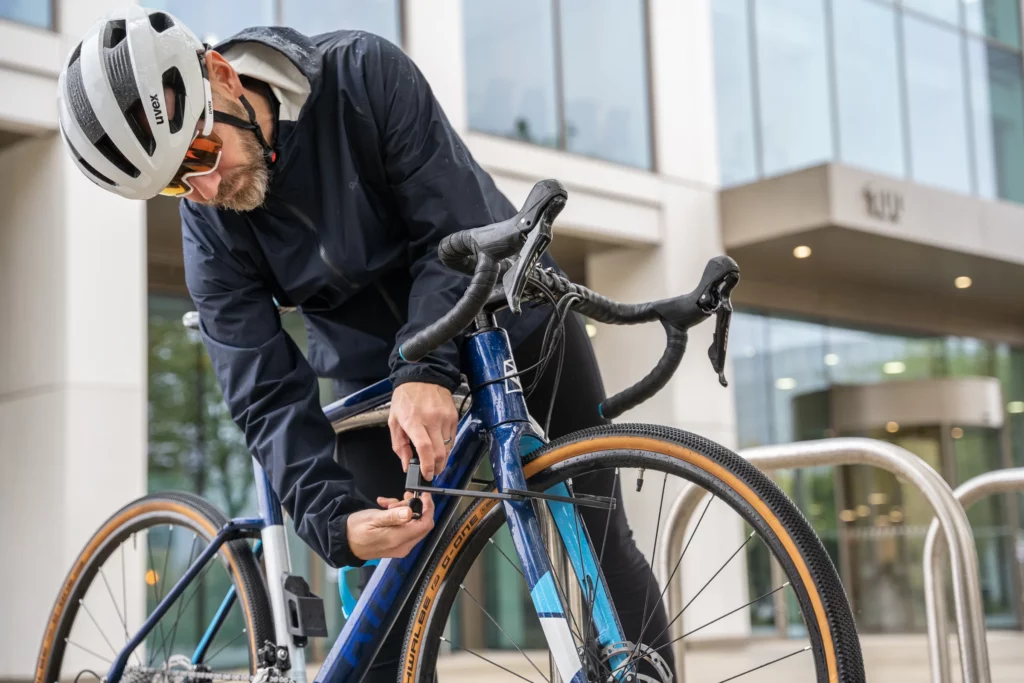
Folding Lock Advantages:
- A lightweight, portable option for on-the-go
- More flexible for awkward locking situations
Folding Lock Disadvantages:
- Less secure than D-Locks or heavy duty chains
- Can be more expensive than cable locks
A folding lock is a good option for medium risk areas and for cyclists than need a portable yet secure solution. They offer greater security than a cable lock but are just as portable. So, a good middle ground if you don’t fancy carrying a chain around with you!
Ultimately, which lock you choose will be determined by how, and where you’ll use it. If you’re locking your bike up at home, a D-Lock and/or Chain Lock plus ground anchor is ideal (as well as keeping your bike away from the view of prying eyes).
If you’re looking for a portable solution to take with you on rides, a cable or folding lock will be a less cumbersome choice.
If you’re commuting and must leave your bike outside, a D-Lock is a fantastic, hard to cut option.
Looking for the right lock for your needs? Pop into any of our 12 stores you’ll find a great selection of locks, plus a friendly team who can answer any question you may have about bike security. You can also shop locks online by clicking the button below (choose from Home Delivery or Click & Collect to your nearest store).
CBJ Modular Finishing Boring Head
CBJ Modular Finishing Boring Head
Cbj Modular Finishing Boring Head,Cbj150 Finishing Boring Head,Cbj200 Finishing Boring Head,Cbj300 Finishing Boring Head
SICHUAN JOJO TOOLS CO., LTD , https://www.jojo-tools.com